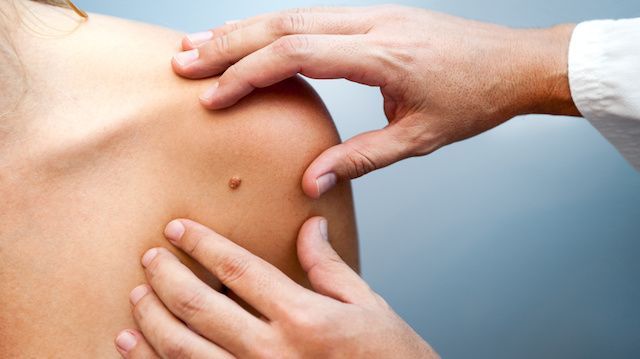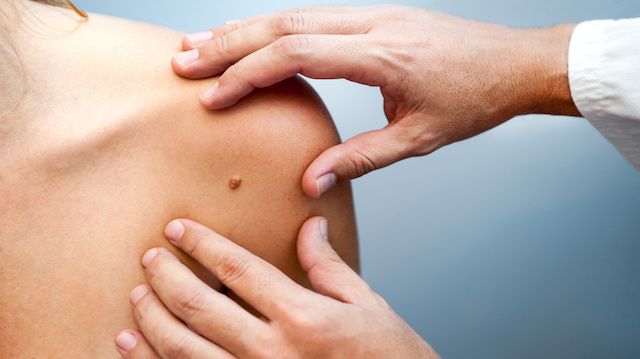
Skin cancer is no joke; it strikes thousands of Americans each year with deadly results. Medical advice has been to stay out of the sun whenever possible, wear sunscreen, and get any suspicious moles checked. However, a new study has indicated that if you have fewer moles, you may be at higher risk of developing the most dangerous and deadly forms of this cancer.
What the study said
The American Academy of Dermatology released new information at the 2015 Summer Academy Meeting stating that individuals with fewer moles may be diagnosed with more aggressive skin cancer more often than those with many moles. The study authors found that people who have more than 50 moles are somewhat less likely to be diagnosed with the most aggressive form of skin cancer.
Researchers at the Beth Israel Deaconess Medical Center in Boston compared individuals with fewer than 50 moles and their rate of cancer diagnosis with individuals who visited the center having more than 50 moles. The researchers studied over 280 people treated at the center. Patients who had a lot of moles and atypical moles were typically diagnosed with less aggressive skin cancers. Surprisingly, the patients with fewer moles had more aggressive forms of skin cancer and were more likely to be diagnosed with aggressive cancer at a younger age.
What the study means
According to the researchers, there could be several reasons why individuals with fewer moles had higher rates of aggressive cancer. One theory is that individuals with more moles may be better educated about the dangers of the sun. Individuals with moles are taught to examine them regularly for signs of irregularity and possible skin cancer. This could make early detection easier for individuals with a lot of moles.
 Another theory offered by the study researchers is that there are skin differences between individuals with and without moles. According to the study authors, “We already know that melanomas are not all the same genetically. It’s possible that there are different pathways that drive melanoma in these two patient groups, resulting in different degrees of aggressiveness. If patients with fewer moles are more prone to aggressive melanoma, then we need to make sure that they are also being educated and screened, in addition to patients with many moles.”
Another theory offered by the study researchers is that there are skin differences between individuals with and without moles. According to the study authors, “We already know that melanomas are not all the same genetically. It’s possible that there are different pathways that drive melanoma in these two patient groups, resulting in different degrees of aggressiveness. If patients with fewer moles are more prone to aggressive melanoma, then we need to make sure that they are also being educated and screened, in addition to patients with many moles.”
Perhaps individuals who have fewer moles are at increased risk for more aggressive types of skin cancer simply due to their genetic makeup, even if they practice the same skin-saving routine.
How to reduce your risk of getting skin cancer
Whether you have moles or not, protecting your skin from dangerous UV rays is important. Even though sun exposure provides vital vitamin D, getting a sunburn increases your risk of cancer. It is important to find a balance between sun protection and sun exposure. Use the following tips to reduce your risk of exposure:
- Don’t stay in direct sunlight for more than 30 minutes at a time.
- Wear light layers to prevent sun exposure for extended periods.
- Eat and drink foods with plenty of natural antioxidants to fight cancer risk.
- Consider not using sunscreen, as it encourages you to stay in the sun for longer than is safe.
- Use natural sunscreens, such as coconut oil, to discourage sunburn.
- Get your skin checked for skin cancer every few years whether you have moles or not.
Follow these tips to stay safe and healthy! Even if you have a history of overexposure and sunburn, you can reduce your risk too!
—The Alternative Daily
Source:
https://www.aad.org/stories-and-news/news-releases/study-fewer-moles-may-mean-more-aggressive-melanoma

